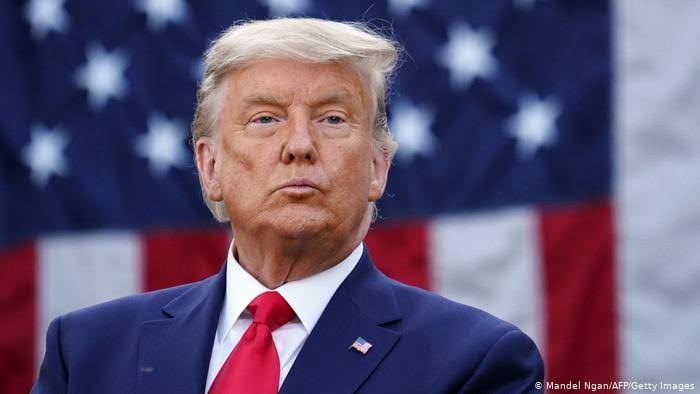
The Historic Conviction: Is Trump Truly Guilty?
Former President Donald Trump’s conviction in a significant hush money trial in New York has left the nation buzzing with mixed emotions. Some celebrate this as a watershed moment in US political history, while others shake their heads in disbelief, wondering how the man who once proclaimed himself the “master of deals” could have been caught up in such a scandal.
Critics argue that Trump’s conviction is a long-overdue reckoning for a man who seemed to believe he was above the law. They point to his colourful history of controversial statements, questionable business practices, and inflammatory tweets as evidence of a leader who consistently pushed ethical boundaries.
Trump’s political journey has also been marked by humour. From his unique hairstyle that defies gravity to his late-night Twitter rants, he brought entertainment to the political arena. The unforgettable “covfefe” incident, where a late-night tweet turned into a viral sensation, perfectly captured the absurdity and unpredictability of the Trump presidency.
While Trump’s conviction may be seen as a watershed moment in US political history, it’s important to approach it with a critical eye.
Implications for US Democracy
Trump’s conviction on 34 felony counts of falsifying business records carries profound implications for US democracy. It reinforces the principle that no individual, including a former president, is above the law. This landmark verdict bolsters public confidence in the independence of the judicial system and underscores the accountability of political leaders.
The six-week trial culminated in a unanimous jury decision that Trump falsified business records to conceal a hush money payment during the final weeks of the 2016 presidential election. This legal precedent demonstrates that criminal charges can be pursued against former presidents and underscores the resilience of democratic institutions in holding leaders accountable.
But Trump has also insisted that his trial and subsequent conviction were politically motivated. There are arguments about the timing of the prosecution as an indication that it may have been motivated by the government of President Joe Biden in order to discredit the former President and shut him out of the White House.
Trump’s Eligibility and Political Future
Despite the conviction, Trump maintains the legal ability to seek the presidency again, as US law and the Constitution do not expressly prohibit convicted individuals from running for office. Trump has asserted his eligibility to run, disregarding the verdict. The impact of this conviction on his political ambitions hinges on public perception, legal developments in ongoing cases, and intra-party dynamics.
But Trump has also insisted that his trial and subsequent conviction were politically motivated. There are arguments about the timing of the prosecution as an indication that it may have been motivated by the government of President Joe Biden in order to discredit the former President and shut him out of the White House.
Sentencing scheduled for 11 July 2024 will determine potential legal consequences, such as imprisonment or other penalties. However, Trump’s freedom and eligibility under the law preserve his capacity to rally supporters and navigate political challenges.
Opposition’s Response and Political Strategy
Critics of Trump view the conviction as validating their critiques of his presidency and an opportunity to stress the significance of the rule of law. Opponents may leverage this conviction to reinforce opposition to Trump’s policies and leadership style, aiming to sway undecided voters and moderate Republicans.
The political landscape remains complex, with Republicans who distance themselves from Trump risking alienation of their base. Internal GOP division highlights broader implications of Trump’s conviction on party unity and electoral strategy.
Potential Impact on Trump’s Re-election Prospects
The conviction presents hurdles for Trump’s potential re-election bid. While core supporters may perceive legal battles as politically motivated, undecided voters and independents may weigh accountability and ethical conduct. Post-verdict opinion polls could illuminate public perception of Trump’s suitability for office.
Trump faces additional legal challenges, including cases stemming from actions following the 2020 presidential election and allegations of mishandling classified information. Case outcomes may shape his political trajectory and sway voter sentiment in upcoming elections.
The 2024 US Election: A New Landscape
Beyond Trump’s conviction, the 2024 US election promises an intriguing contest. A former president’s conviction adds complexity to the political landscape. Democratic and Republican parties are nominating candidates, and election outcomes could shape the nation’s future.
The Democratic Party aims to maintain White House control, energised by Trump’s conviction and advocating ethical leadership. Despite Trump’s challenges, Republicans retain significant support, potentially coalescing around a candidate appealing to diverse voters.
Why Do Most Americans Believe Donald Trump Is a Better President Than Joe Biden?
Opinions on the effectiveness of former President Donald Trump versus current President Joe Biden vary widely among Americans. Key factors influencing these views include:
1. Policy Priorities and Ideological Alignment:
Some Americans favour Trump’s policies on immigration, trade, and deregulation, believing they better reflect their own values and are more effective in addressing their concerns.
2. Economic Performance:
Trump supporters often cite pre-pandemic economic growth, low unemployment rates, and stock market performance as evidence of his economic management success. Biden supporters, on the other hand, may argue his policies, like the American Rescue Plan, are aimed at addressing pandemic-related economic challenges and inequality.
3. Leadership Style and Communication:
Trump’s direct and unfiltered communication style appealed to some Americans, who saw it as genuine and relatable. Biden supporters value his more measured and diplomatic approach, which they view as promoting stability and unity.
Various other factors, including political affiliation, media coverage, and personal experiences, also influence public opinion. It’s important to acknowledge that perspectives on presidential effectiveness are diverse and shaped by multiple considerations.
While opinions differ on whether Donald Trump or Joe Biden was a better president, individual viewpoints and priorities play a significant role in shaping these assessments. Respectful dialogue can help foster understanding of the range of opinions held by Americans.
Conclusion
Trump’s conviction in the hush money trial marks a significant turning point in US political history, emphasising the importance of accountability and the rule of law. This verdict raises questions about Trump’s potential future candidacy and its impact on his political journey, depending on unfolding legal proceedings, public sentiment, and the evolving US political landscape.
Trump’s conviction reverberates throughout the political sphere, fuelling discussions on ethics, leadership, and democratic governance. The upcoming months will reveal whether this verdict reshapes Trump’s trajectory or cements his position among supporters and critics. The 2024 US election further complicates the landscape as parties vie for control of the White House, influencing the nation’s future direction.
Monitoring the legal proceedings is essential to understand the evidence and arguments presented. This will enable a comprehensive analysis of the consequences for Trump’s political aspirations and the broader implications for the US political landscape.



